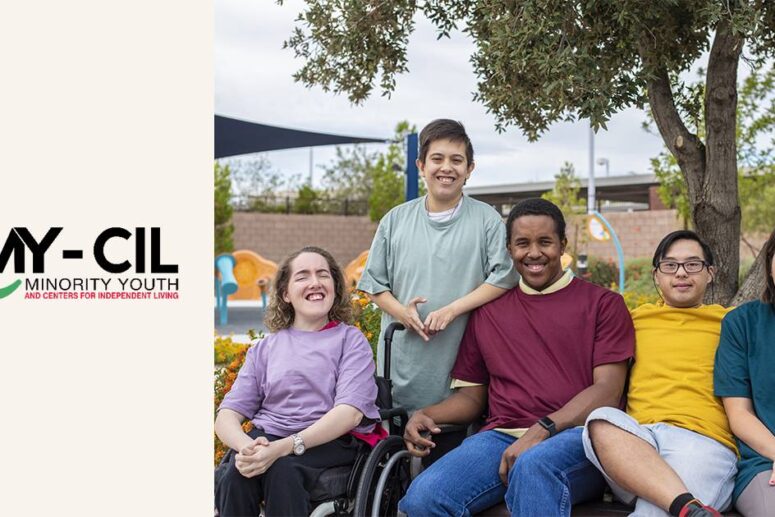Wednesday, March 22, 2023, 3:00 – 4:30 p.m.
Please join us on Wednesday, March 22, 2023, from 3:00 to 4:30 p.m. ET for the second Minority Youth and Centers for Independent Living (MY-CIL) project webinar. This event is free and open to everyone. After registering, you will receive a confirmation email with information about joining the webinar.
This MY-CIL webinar will highlight findings from three focus groups held with out-of-school youth from minority backgrounds. Youth participants and CIL staff will discuss recommendations and strategies for improving CIL services for youth with disabilities from racial and ethnic minority backgrounds.
CILs are community-based organizations for people with disabilities that are designed and operated by people with disabilities. CILs empower people with disabilities to make their own choices about the things that affect their lives. The amended Rehabilitation Act of 1973 requires CILs to provide five core services:
- Information and referral
- Independent living skills training
- Peer support and mentoring
- Individual and systems advocacy
- Transition services
The Workforce Innovation and Opportunity Act requires CILs to provide services to youth with disabilities who are transitioning to adult life after completing or ending high school. CIL services could benefit minority youth with disabilities who face multiple barriers to independent living as they transition.
Our webinar speakers will include three youth participants from the focus groups who will share their experiences and advice. In addition, CIL staff and directors from Able South Carolina; Center for Independence of the Disabled, New York; and Southern Illinois Center for Independent Living will discuss their current programming and strategies for engaging consumers. We will also provide audiences with information about future MY-CIL learning opportunities.
Webinar speakers and panelists
- Barbara Anderson, independent living specialist for FAST TRACK at Southern Illinois Center for Independent Living
- Apple Gabriel, youth participant
- Michael Hanna, equip coordinator at Able South Carolina
- Sharon Mclennon Weir, Ph.D., MSEd, CRC, LMHC, executive director of Center for Independence of the Disabled, New York
- Oliver Olivia, youth participant
- Amanda Reichard, Ph.D., project officer at the National Institute on Disability, Independent Living and Rehabilitation Research, Administration for Community Living
- Aditya Singh, youth participant
Resources
- Ways CILs Can Conduct Effective Outreach to Youth with Disabilities from Minority Backgrounds: Focus Group Findings
- Ways CILs Can Sustain Engagement of Youth with Disabilities from Minority Backgrounds: Focus Group Findings
- Program and Activity Recommendations for CILs Working with Youth with Disabilities from Minority Backgrounds: Focus Group Findings
Please join us to share your questions and listen. We believe exchanging promising practices is a fundamental approach for accelerating progress among CILs, and we hope you can attend.
If you need assistance before the webinar, please contact us at events@mathematica-mpr.com. We will make every effort to accommodate your participation in this event, including the provision of closed captioning, an ASL interpreter, and accessible materials that will be posted on this page about two days before the event date. You can also request accommodations during registration.
About MY-CIL. MY-CIL is a partnership between Hunter College School of Education; Mathematica and its Center for Studying Disability Policy; the Center for Independence of the Disabled, New York; and Independent Living Research Utilization to generate and share knowledge that empowers CILs to better serve out-of-school youth and young adults (ages 14 to 24) from racial and ethnic minority backgrounds.
Discover additional details about the MY-CIL project by visiting the project website.
DISCLAIMER: Funding for MY-CIL is provided by the Disability and Rehabilitation Research Project on Minority Youth and Centers for Independent Living at Hunter College, City University of New York. This project is jointly funded under grant number 90DPGE0013 as a cooperative agreement between the Office of Independent Living Programs and the National Institute on Disability, Independent Living, and Rehabilitation Research, both in the Administration for Community Living, U.S. Department of Health and Human Services. The contents do not necessarily represent the policy of the Department of Health and Human Services, and you should not assume endorsement by the federal government.


